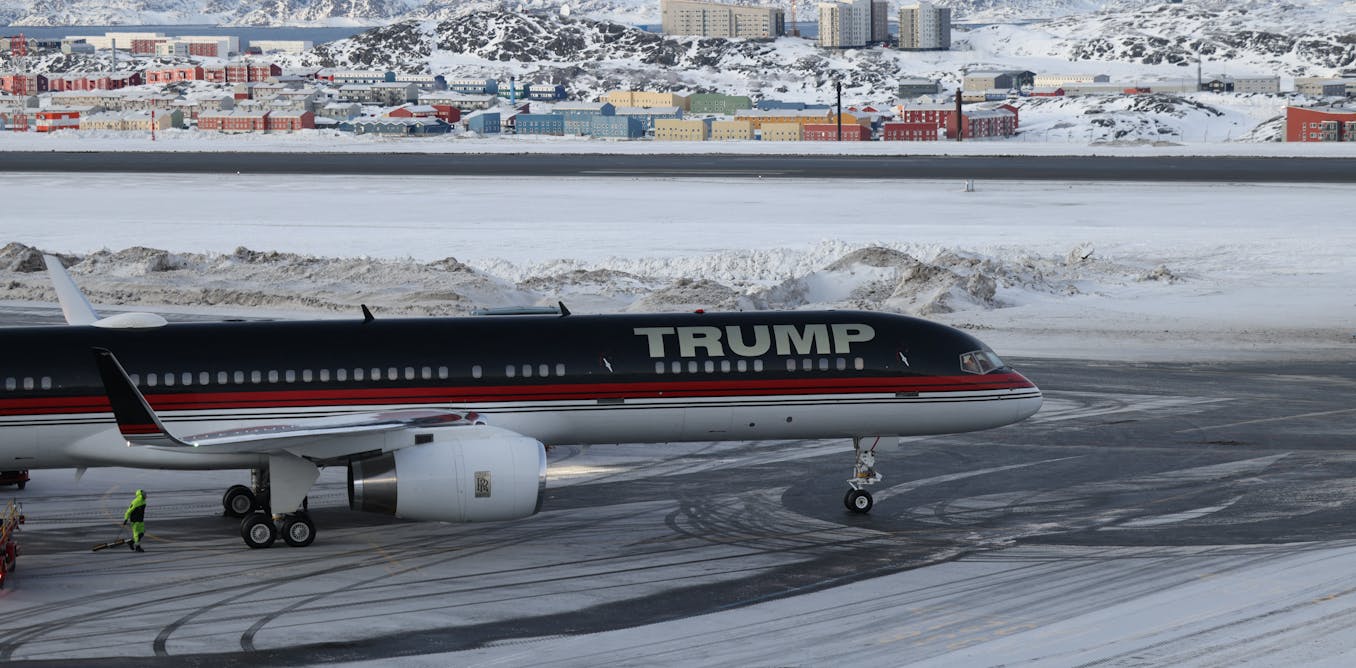
In a recent diplomatic flare-up, President-elect Donald Trump reignited interest in acquiring Greenland for “national security” purposes. His remarks, however, faced swift backlash, particularly from Danish Prime Minister Mette Frederiksen, who emphatically stated that Greenland “is not for sale.” This exchange has drawn significant attention and discussion regarding the geopolitical importance of Greenland, a self-governing territory under Danish control.
Trump’s interest in Greenland isn’t a fresh concept; he first raised the idea back in 2019. Despite his past musings, concrete plans have yet to materialize. With his ongoing emphasis on national security, it raises questions about what Denmark and Greenland mean in the broader context of U.S. global strategy.
As a scholar at the forefront of geopolitical conflicts in the Arctic, I see four key areas highlighting Greenland’s strategic significance: its rich mineral resources, military presence, its role in Arctic geopolitics, and potential paths toward independence.
A Wealth of Resources
Greenland boasts abundant mineral wealth that could be crucial to its economic future. Recent assessments highlight valuable deposits of precious metals, base minerals like zinc and copper, and rare earth elements that are vital for modern technology, including renewable energy sources. The potential for these resources emphasizes Greenland’s importance on the global stage, particularly in a world increasingly focused on sustainable energy solutions.
The territory’s rare earth deposit at Kvanefjeld represents a significant opportunity. If developed, it could position Greenland among the leading producers worldwide, attracting international investment and interest.
Global Dynamics and Interests
The interest from Chinese firms in Greenland over the past decade is notable. China has shown an eagerness to invest in mining and infrastructure, illustrating the dynamic and sometimes contentious nature of international relations in the Arctic. While concerns have been raised regarding a potential Chinese foothold in Greenland, it’s important to acknowledge the island’s agency and the progressive steps its leaders have taken to navigate these complex waters. In recent moves, Greenland’s government has prioritized sustainability and ecological considerations by halting oil and gas exploration, ensuring that its potential development does not come at an environmental cost.
The Path to Independence
Amid these economic pursuits, Greenland’s indigenous population, primarily the Inuit, plays a crucial role in this narrative. With nearly 90% of the island’s inhabitants being indigenous, there is a resounding call for self-determination and a move towards full independence from Denmark. The rising discourse has been fueled by external interests, including Trump’s recent comments, prompting calls for a referendum on independence as early as 2025. Greenland’s Prime Minister, Mute Egede, encapsulated this sentiment, stating that it is time for his country to “remove the shackles of colonialism.”
The geopolitical landscape surrounding Greenland is undoubtedly complex, but the narrative today emphasizes Greenlanders’ resolve to assert their identity and make decisions about their future. The island is navigating a delicate balance of external influences while fostering its aspirations for sustainability and self-governance.
As this unique chapter in Greenland’s history unfolds, it showcases the resilience and forward-looking spirit of its people, a testament to the island’s significance far beyond its resources.
#Politics #WorldNews


